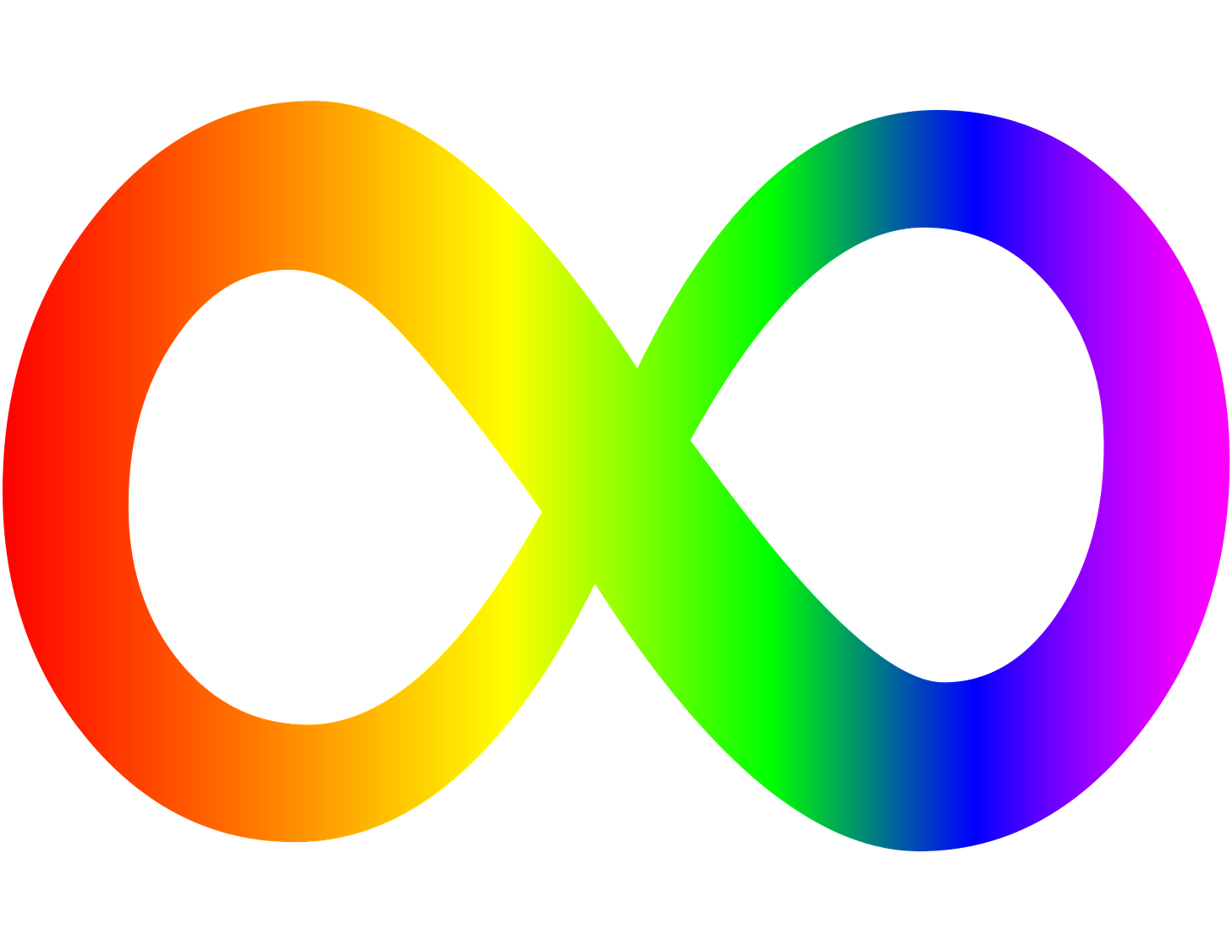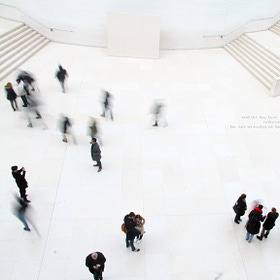I got my official Autism diagnosis last week.
I nodded along and listened intently as the diagnostician reviewed every area tested; why they were positive for Autism; what it all means, and even the single area where I tested "not positive for Autism": the Social Stories Questionnaire (SSQ), which I suspected would be the case because that's what I do for a living—tell stories.
It was a relief, but I also felt validation. All the misdiagnoses that prevented me from getting medical insurance before the Affordable Care Act (ACA) can now be stricken from my record, and tied into a nice, neat package: ASD with co-occurring ADHD.
Merriam-Webster1 simply defines Autism as a variable developmental disorder2 that appears by age three and is characterized especially by difficulties in forming and maintaining social relationships, by impairment of the ability to communicate verbally or nonverbally, and by repetitive behavior patterns and restricted interests and activities.
For nearly two years I've been learning about Autism, and trying to reimagine my life knowing that the struggles I've faced were not those of a deficient or "ridiculous" person, but from one who is differently wired.
I am not defective, I'm just not designed for the status quo that is the modern world. And as it stands, I'm proud of all I've accomplished and overcome—most before we even knew I was Autistic; most derived from hitting figurative brick walls and having to build a ladder from scratch to get over them.... then braid a rope to get back down the other side.
My children are next to be diagnosed, all three scheduled for their own assessments with one recently underway. One who's recognized by the school as Autistic and already getting some support she needs there, and one who's young enough to be completely oblivious that she's different from her most of her peers, and that’s entirely okay too.
As an Autistic adult, though, especially one diagnosed in adulthood, it's kind of like my Celiac Disease3 diagnosis: this is what you have, this is what you [need to] do, and good luck to you! as you're sent off on you're overwhelmed but slightly better informed way.
I feel lucky that I found local (although welcome to all from anywhere) Autistic Meetup groups, Autistic subreddits, two therapists and a neurodivergent4 doctor as well.
But few diagnosed adults are so fortunate.
As the saying goes, “when you’ve met one Autistic person, you’ve met one Autistic person,” we all struggle differently, yet can manifest similarly.
Many of us have unique abilities or talents (as you might’ve heard savants mentioned around Autism) that seem beyond the “norm” of what someone can easily do or achieve.
For example, my biggest struggles revolve around sensory issues, verbal communication, executive function5, emotion regulation, and social interaction. But I credit Autism with my problem-solving skills, my systematic brain—understanding how things work just by looking at them; breaking complex ideas down into small, digestible parts for others to more easily comprehend—the ability to visualize anything (thinking in pictures), and even excelling in all of the arts.
And, you could say, making it to 35 years old undiagnosed means I was also a damn fine actress... but at much cost to my mental and maybe even my physical health.6
As it stands, Autism "is diagnosed three to four times more often in males compared to females," said Dr. Thomas. D. Challman, medical director of the Geisinger Autism and Development Medicine Institute in Danville, Pennsylvania. Growing evidence suggests that current diagnostic procedures may fail to capture how Autism Spectrum "Disorder" (as labeled a disorder by neurotypical doctors, that is) manifests in women and thus exaggerates the already existing difference in prevalence rates.7
And, of course, women have also been found to be diagnosed significantly later in life, and experience greater delays in the time from an initial evaluation to receiving a clinical Autism diagnosis.8
In the United States, if you're not a child and diagnosed Autistic as an adult, you're basically on your own. Add in being a woman, and you'll be lucky to even get seen (or taken seriously) at all.
My journey to diagnosis took nearly two years from self-discovery to diagnosis. That could be considered relatively short in comparison to many I’ve heard from within the community.
My one child has been on Seattle Children's waitlist all this time too, and in December she just had the preliminary virtual visit to essentially vet her for the next round (which she qualified for, luckily).
But it could take a few more months still for the second diagnostic visit to simply be scheduled.
A few people in the Autistic community who self-identify, and many outside of the neurodivergent community have asked why we who seek official diagnosis bother spending the money and time to receive it. I can’t speak for everyone, but for me there were many reasons; my main three being:
at the most basic level, to know for certain because I haven’t been the most comfortable stating, “hey, I’m Autistic” when I had not yet been diagnosed officially;
to rule out other potential psychological disorders, and dissolve previous misdiagnoses; and
for workplace protections through the ADA (Americans with Disabilities Act)9, if I ever decide to be employed by someone else again.
But self-identification is perfectly valid, and "enough" for many.
And although I've written about this before, I wanted to share some resources to consider if you’ve ever felt "different" or like "you can never do anything right"; if you struggle with things or activities that seem easy or second nature to others; if you feel like or others often tell you you overreact; if you ever "lose your words" under even the most minor (to others) circumstances, etc.
If any or all of those points resonate with you, check out these resources in order:
Samatha Craft’s Unofficial Checklist: Females and Autism / Asperger’s, and/or Autism Citizen’s breakdown of Autistic traits.
If several traits resonate with you, take the Autism Quotient (AQ) test—you’ll want to save your answers and score if you decide you want to pursue a formal diagnosis or see a specializing therapist. (Keep in mind, this test was designed by a neurotypical man for a young boy with Autism—it’s not always an accurate indicator of Autism, especially in women (although I scored a 47/50).)
And if you also find yourself struggling enough with particular or many facets of life, you may want to seek out a therapist or diagnostician to help you develop skills or learn coping strategies to better engage with and interact in the world. (Although that’s a controversial statement amongst the neurodivergent community, I want to clarify that we are still a minority; and especially with lack of education, we still have to live in the world, which sometimes requires us to make amendments; and for those of us able and willing, to educate and spread accurate information to better the world for future generations of Autistic people, and neurodivergent folks on the whole.)
And even if you're not Autistic or neurodivergent, I appreciate you taking the time to read this; and hopefully gain more insight into what Autism actually is versus the stereotypes threaded throughout movies like “Rain Man” and the seemingly universally loathed “Music”.
And maybe one day with enough people's comprehension of what Autism is, we'll eventually stop hearing, "But you don't look Autistic," as if Autism affects one's physical appearance…
Thank you.
My best,
Sara
This newsletter comes out Sunday mornings (U.S.). You can help keep them coming by becoming a paid subscriber, buying my planner for professionals, buying me a “cup of coffee,” and even sharing and “Liking” this post helps, too.
I appreciate you whether you contribute a lot, a little, or even if you can’t right now. Thanks for being a subscriber, and thanks for reading.





